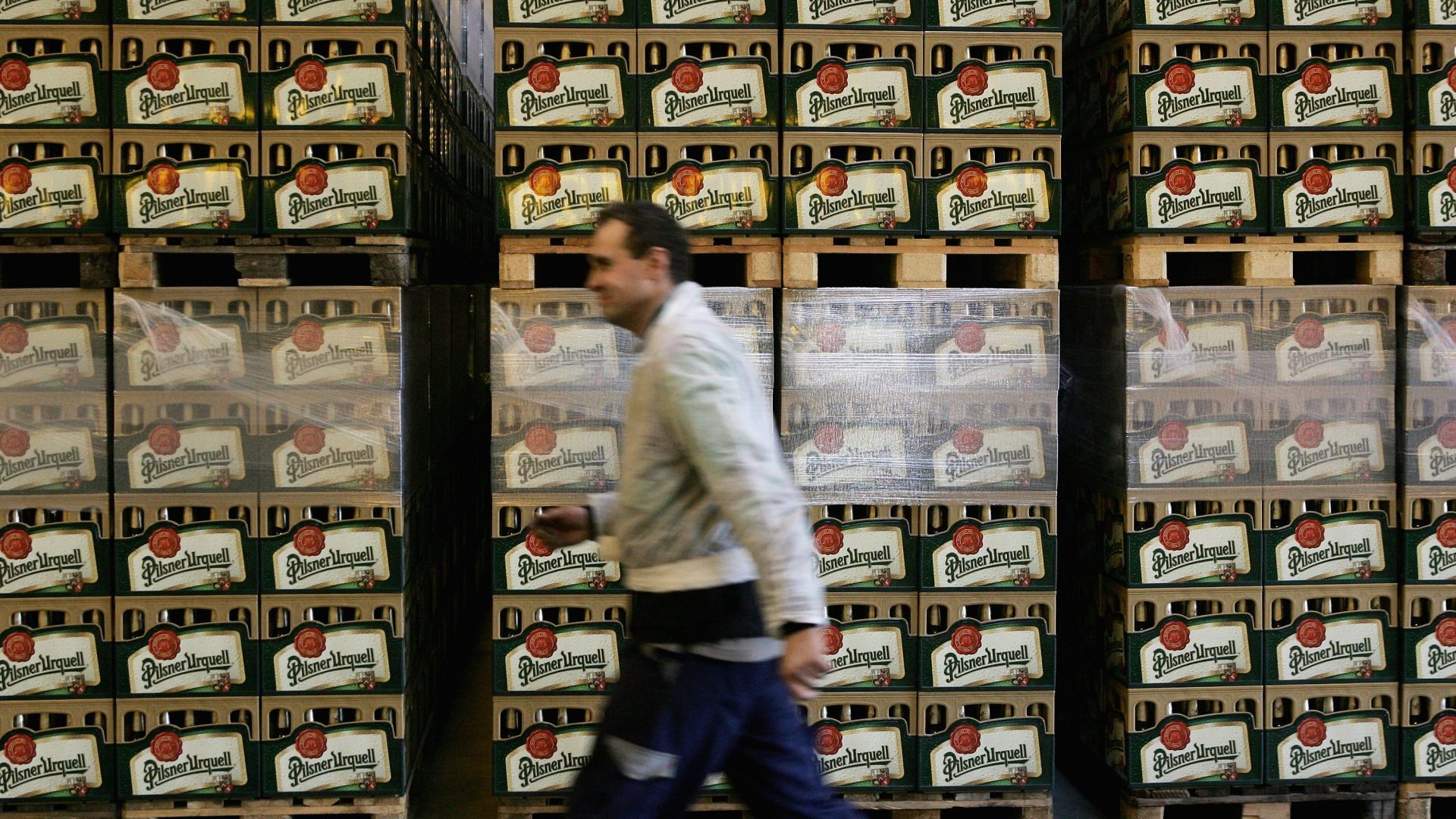Is Czechia bracing itself for another beer rebellion? On previous visits, I was told by friends that the country’s most beloved beer, and my own favourite, Pilsner Urquell, would never go above 50kč (£1.77) per half-litre. It did. Now they say it won’t go above 60kč (£2.12). But in the posher Pilsner pubs and tourist areas, it already has.
The first beer rebellion took place in Pilsen (Plzeň in Czech) in 1838, when workers grew fed up with the disgusting beer from local breweries but couldn’t afford the better booze enjoyed by the nobility. These workers then took matters into their own hands by seizing 36 barrels of the poor malt brew and emptying them across the cobbles of the main square. Simply, they demanded better.
Along came the Bavarian Josef Groll who, in 1842, devised the world’s first and much-copied Pilsner beer, so named as it’s from Pilsen. Moravian malt, green Saaz hops and fresh Pilsen spring water were the magic ingredients, along with a brewing process of copper pans, triple decoction, and a bottom fermentation that keeps some of the sugary sweetness and means the beer is not too strong. The result is a golden beer that treats your palate to a rich blend of bitter and sweet, and a fulsome froth. Na zdraví! The Czechs knock it back like water. Which is hardly surprising, because in their bars it’s still cheaper than bottled water.
Blame it on the monks! Throughout Europe, monks were brewing beer from around the 10th century. They referred to it – and Czechs still do – as “liquid bread”. The monks were cunning: as their “liquid bread” was not designated solid food, they could carry on drinking through a holy fast.
Heaven might just be the beer section of a Czech supermarket. Bottles fill shelf after shelf, from Hubertus, starting at 9kč, and Rychtář at 11kč, there’s Krušovice, Svijany, Bernard and Starobrno, while the Prague brewery Staropramen still has devoted followers. But Pilsner Urquell was a craft beer before they were invented, with a history that new hipster potions crave: the same Pilsen brewery and elegant logo since 1842.
Nearly every town in Bohemia had a brewery at one stage. I relish the mouthwatering litany of beers on the blackboards outside the bars, poems in themselves, along with their Balling scale of sugar density, in degrees, such as Rohozec 12°. You’d have to be a saint not to pop inside for a pot.
The nation’s great writers, Jaroslav Hašek and Bohumil Hrabal, wrote like bar-room raconteurs. The latter grew up in a brewery in Nymburk, and claimed he wrote best with a hangover. Václav Havel, while a dissident playwright, was ordered by the regime to work as a barrel-man in Trutnov.
Sure, you can find Pilsner Urquell in other countries, but it’s expensive and inferior. That’s because Czechs know how to store and pour their beer, how to tap and serve, how to flush the pipes each time you change a keg, how to clean the pipes chemically at least once a week. The glass must be cold and wet before serving. And if you can find a hospoda with tank beer, even better, as your half-litre won’t mingle with the gas needed to pump it out of the keg.
Don’t forget the art of pouring, replete with the buttery foam. The froth seals the flavour, and stops the beer being oxidised quickly. There should be three fingers of froth, enough to dot the “i” of “Pilsner” on the legendary half-litre glass. Or so I learned at the new Pilsner Urquell Experience in Prague, where I took a tapster course. A Japanese lady in our group was the best at pouring, and I wondered if she was a plant from the owners, Asahi, who acquired Pilsner Urquell in 2017. Mercifully they have not tampered with the recipe.
In any case, I soon resorted to a more authentic Pilsner Urquell experience: downing several frothy pots in The Shot-out Eye, Žižkov, a hospoda where many Czech undergrounders still hang out, under the statue of Jan Žižka, the victorious one-eyed leader of the Hussites. The price there? 57kč. If it creeps over 60kč, that’s where the rebellion will begin.



